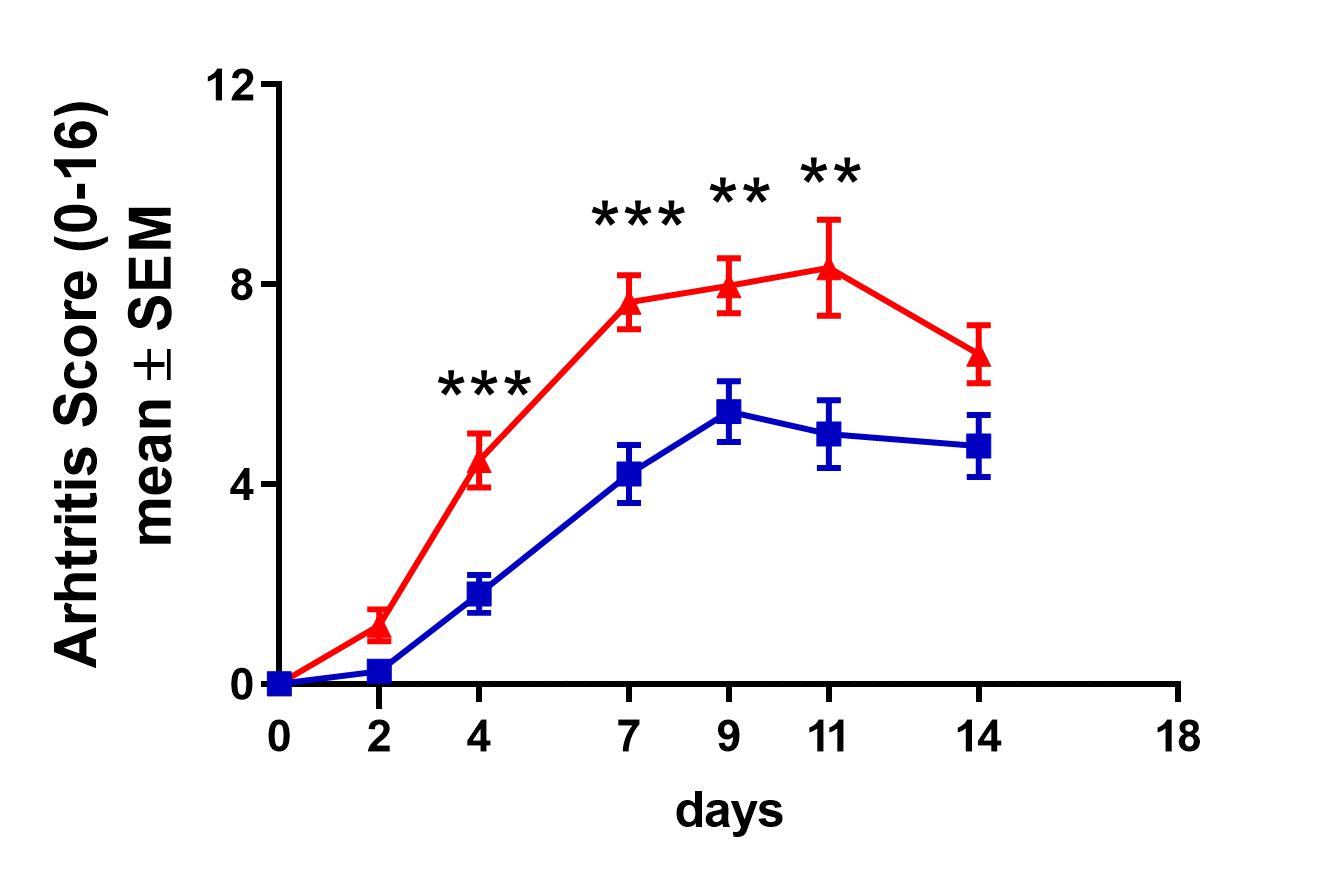Session Information
Session Type: Abstract Session
Session Time: 4:00PM-5:30PM
Background/Purpose: We have previously identified the Huntingtin-interacting protein-1 (HIP1) as a new gene implicated in the regulation of the rheumatoid arthritis (RA) fibroblast-like synoviocyte (FLS) invasiveness induced by receptor tyrosine kinases, and in arthritis severity. Following that observation we examined genes and proteins regulated by HIP1 as those might generate important understanding of disease pathogenesis, and potentially new targets for treatment.
Methods: We used a combination of siRNA knockdown, gene expression and invasion assays in RAFLS, followed by immunoprecipitation and western blots. DUSP6 knockout (KO) mice were studied in the KRN serum induced arthritis (KSIA) model.
Results: In RA FLS knockdown for HIP1 we detected increased mRNA levels of the dual specificity phosphatase 6 (DUSP6). We confirmed protein expression of DUSP6 in RA FLS cell lines and binding of DUSP6 to HIP1 by immunoprecipitation in RA FLS cell extracts, followed by western blotting. We hypothesized that, like HIP1, DUSP6 might also be involved in FLS invasiveness. Knockdown of DUSP6 with siRNA significantly decreased RA FLS invasiveness by more than 50% (P< 0.001). In the arthritis model of KSIA, both male and female DUSP6 KO mice were significantly protected compared with wild-type mice, developing a significantly milder disease (maximum disease reduction of nearly 50% at day seven; figure). DUSP6 KO mice also had increased numbers of CD4+CD45–CD49b+LAG3+IL10+ Tr1 regulatory T cells (P< 0.01) in the spleen, increased serum levels of IL10, and lower serum levels of IL6 (P< 0.01). RNA sequencing analyses revealed significantly increased representation of ERK and MAPK pathways and genes in the spleens of DUSP6 KO mice, compared with DUSP6 wild-type. DUSP6 is known to inactivate MAPK pathway proteins and therefore the RNA sequencing finding were consistent with decreased DUSP6 activity.
Conclusion: We identified a new HIP1-binding protein, DUSP6, and demonstrated that like HIP1, DUSP6 regulates arthritis severity and joint damage. Our findings suggest that DUSP6 interferes with disease severity by modulating FLS invasiveness and regulating IL10 production by Tr1 cells and suppression of IL6. This new discovery has the potential to become the basis for the development of new treatments for RA and possibly other autoimmune and inflammatory diseases.
To cite this abstract in AMA style:
Laragione T, Harris C, Rice N, Gulko P. The Dual Specificity Phosphatase 6 (DUSP6) Regulates Arthritis Severity and IL10 Production [abstract]. Arthritis Rheumatol. 2023; 75 (suppl 9). https://acrabstracts.org/abstract/the-dual-specificity-phosphatase-6-dusp6-regulates-arthritis-severity-and-il10-production/. Accessed .« Back to ACR Convergence 2023
ACR Meeting Abstracts - https://acrabstracts.org/abstract/the-dual-specificity-phosphatase-6-dusp6-regulates-arthritis-severity-and-il10-production/

